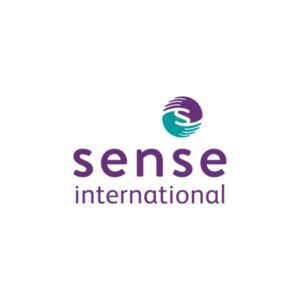Those Living in Care: increased support for those with health difficulties
RNIB
Increasing awareness and skills around basic eye care for those in care.
80-90% of people with learning difficulties face some sort of sight-loss issues – this is higher than other demographics, yet there is no training for social care workers on this area.
RNIB’s Learning Disabilities Vision Friends training programme was funded by CareTech for three years and was specifically designed to meet this gap in training. 153 care workers undertook the CPD UK certified training, 144 of whom were CareTech staff. 18 people were trained as trainers. It has been estimated that those trained will have the potential to help over 600 people with learning difficulties with their sight-loss issues. A SharePoint website containing the training materials and toolkit was developed during the course of the programme.
This initiative has served as a valuable stepping stone in developing an evidence base for the need for this type of training in social care settings. The long-term ambition is to use these learnings to get sight-loss training embedded in relevant social care training for all care workers.

OnSide
Delivery of direct and localised support and developing a best practice approach.
Over the last three years, the “Train the Trainer” approach has been successfully implemented in 14 locations, training 241 Mental Health First Aiders. These First Aiders have provided direct support to 20,100 young people (double the target).
This successful initiative has led to the expansion of the programme with OnSide recruiting 11 new health workers, and 5,377 young people have participated in targeted health initiatives. 1,033 young people have received 1-2-1 support to access external support for their health, and 706 young people accessed signposting support from Mental Health First Aiders.
The positive legacy of the CareTech Foundation support will be built on with The Prudence Trust, Lego Foundation and Burberry Foundation continuing to fund programmes.

Motivation
Empowering people with mobility disabilities to live independently.
By developing and providing personalised wheelchair services, Motivation Charitable Trust have raised care standards and improved the quality of life and community inclusion for wheelchair users in Kenya.
To date the organisation has supported 475 care professionals and provided 230 people with wheelchairs, mobility skills training and mentorship. 364 care professionals have received new qualifications or training, as have 12 Community Artisans and 111 other programme stakeholders, including community leaders and government workers. Unexpected positive employment outcomes have been reported for a small number of those trained.
CareTech Foundation’s support has helped pave the way for setting up sustainable rehabilitation service delivery. Motivation Charitable Trust is partnering with learning institutions, including a national university, to demonstrate the model. By supporting students to practice what they have learned, there will be an upskilling of the workforce over time, which will drive up national standards. The programme has also become more vocal in the national discourse around rehabilitation, with the Trust now part of the Country Rehabilitation Technical Working Group under the Coordination of Ministry of Health, and aims to make wheelchair service provision accessible and affordable across Kenya.

Sense International
Advocating for sensory screening and early intervention for children with deafblindness.
Across Tanzania, children with deafblindness and multi-sensory impairments are not being identified. They receive little support to communicate, move around or build independence. However two years into the partnership with Sense International, sensory screening and early intervention for children with deafblindness is exceeding initial programme targets.
Working in the high poverty region of Temeke, Tanzania, 24 health facilities have been established with increased capacity to deliver sensory screening services. 89 primary and community health workers have been trained, 46,239 children have received at least the first stage of screening and 203 have been enrolled on to early intervention therapy. At least 18 children have progressed against their individual milestones. 243 parents have been supported.
This programme has allowed Sense International to test this model in the local context in Tanzania and develop an understanding of how services needed to be adapted for success within the national health care system. The programme has also led to new relationships for future funding that will build on this work, with an ambition of developing a sustainable service in the long-term, and securing buy-in and commitment from the government.
